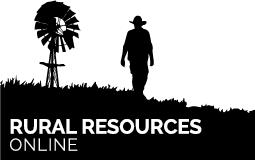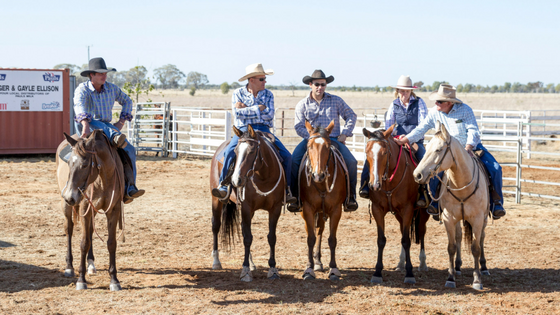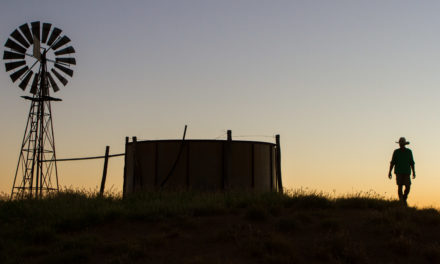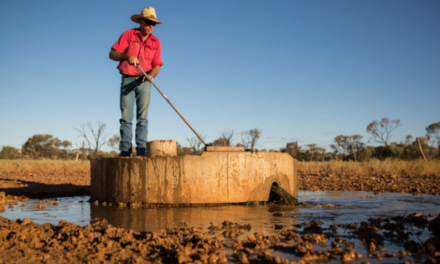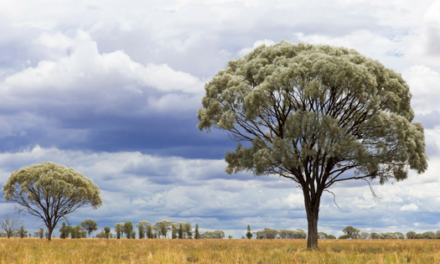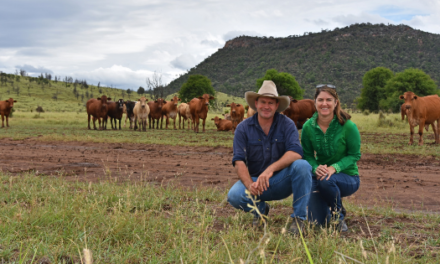So, there we were, standing in a cane paddock, fourth-generation farmer Tony in his workboots and a first-year rural reporter in her heels. Above a parched earth, we were engrossed in discussion of sugar content, the scourge of rust, single desk selling agreements and the heartbreaking reality of an unprecedented drought.
“This is God’s country,” Tony told me, gesturing with unwavering faith to the cane-laden valleys of the Whitsundays. “And it will be again.”
As a journalist I remember it with vivid clarity because farming became startlingly real: the gamble of what crop, when, of commodity prices, selling arrangements and being at the mercy of nature.
This turned out to be an important story – of drought assistance, the sugar industry, of community spirit and resilience. And it was only possible because a farmer made himself available to talk, explain and repeat it again for the girl in his paddock in the heels.
So, here are the top tips for farmers dealing with those “bloody” reporters.
You have a story
Yep, you’re a humble bunch. Often interviewing farmers is like drawing blood from a stone but your story is interesting, not just to local papers but beyond, and you need to tell it well.
Sometimes it’s a story of innovation, sometimes it’s resilience, but very often it’s best practice and environmental responsibility. So you – yes you – with your face beneath that hat, shifting uncomfortably in those boots – stand up and say you care because your father did, because your granddad did before that, and because you know today’s issues are your children’s burdens to bear.
Find the words to be your own advocates because chances are you consistently look at environmental impact long before government and scientists do, because you live within this environment and boast an integral understanding of it that you harness EVERY…SINGLE…DAY. So put your hand up and outline exactly what you are doing and why.
Sometimes you need to be vulnerable
Sometimes your job sucks and sometimes it inspires. Sometimes market forces, interest rates and global economies conspire against you. Sometimes Australia pioneers agricultural techniques and technology that are miles ahead of the rest of the world.
So start telling people about your business in terms they understand. What is it like to wake up and know that prices are low, that a once-in-a-century weather event has occurred and that your five-year investment has not paid off? Conversely what are you doing as thought leaders, global initiators, and industry pioneers?
If agriculture were the stock market people would be shouting it from the front page of every paper – about the bad or the good. So tell the nation your reality in ways they can relate to: mortgages that cannot be paid, investments that reap dividends, product shortages, supply and demand, depression, stress, passion, innovation and initiative…
Educate your market
You’re pretty solid on CCS, cattle prices and the wheat board’s latest news. But like every business you need to educate your market. What do these things stand for? What do they even mean? And how does it impact Jan in the grocery aisle at Woolies?
Why should she care? She knows “every family needs a farmer” but does she understand how that trade agreement or those tariffs affect her and your bottom line?
One more time, for those at the back
To tell your story you need to explain it, time and time again. Chances are that involves providing a 101 on single desk selling with a rooky reporter in a paddock, explaining basic farming practices in simple terms, and sharing your wins or losses in ways that even those beyond your community understand.
Rest assured, it’s a great story and it resonates far beyond primary producers. It gets to the heart of why as a society we do what we do, and make the choices we make.
I think of Tony, God’s country and those who reside in it often, and I willingly heap another teaspoon of Queensland sugar in my coffee. I see cane trains, harvesters and a billowing sugar mill breathing life into a community. I thank each and every person who took the time to share their story, make themselves vulnerable and explain the inner workings of a business that was complex beyond belief.
I know them, champion them, grieve and celebrate with them, even from afar, because now I understand…but only because they generously took the time, over and over again, to humbly allow me in.
